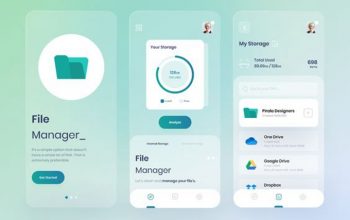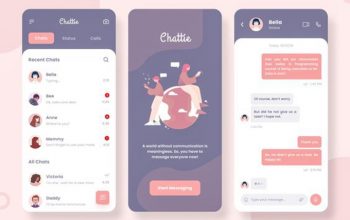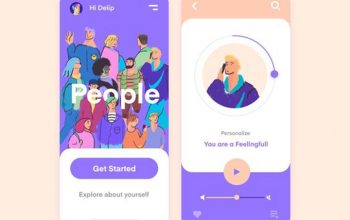If you happen to run a enterprise with an internet presence, you’re going to want buyer knowledge. Buyer knowledge means that you can do issues like successfully goal with advertisements.
However how you receive knowledge is turning into simply as necessary as the info itself. There may be an rising shift in significance between first-party, second-party, and third-party knowledge. And types must know the distinction in the event that they wish to preserve the shopper’s belief and keep compliant with GDPR.
- Table of Contents
- The Most Popular Social Media Apps You Need To Be On
- among us success story
- buy installs android
- buy app installs ios
App retailer knowledge analytics: to study the information about First Social gathering, Second and Third Social gathering Information
Growing privateness restrictions and strikes from corporations
like Apple and Google to restrict or stop the gathering of third-party knowledge via cookies and different means have made first-party knowledge much more useful to entrepreneurs than ever earlier than, and for good cause.
First-party knowledge has the fewest restrictions round its use. It’s essentially the most dependable, as a result of you already know it’s been collected from your personal clients, and has info related to you and your market.
First-party knowledge can be utilized fearlessly for e mail advertising, personalizing web site experiences, customer-tailored promotions, and product analysis.
What First-Social gathering Information Do Manufacturers Have?
Relying on the gathering methodology, manufacturers will have the ability to receive and leverage the next sorts of first-party knowledge:
- Behavioral knowledge collected out of your web site, app or product
- CRM knowledge
- In-store buy knowledge
- Survey knowledge
- Social media profile knowledge
- Buyer suggestions
“Each model has first-party knowledge, however the issue is that it’s all siloed. With no full view of their clients, manufacturers typically spend an excessive amount of cash and energy in constructing and sustaining level to level integrations between techniques. CDPs can help you streamline that complete course of by integrating all buyer knowledge in a single place for smarter focusing on and personalization.”
What Can Manufacturers Do to Create Extra First-Social gathering Information?
Manufacturers have a number of methods of reliably amassing first-party knowledge, even in a post-cookie panorama.
Monitoring Pixels could be added to your web site, product web page, and social media profiles to collect info. Information will likely be collected at any time when a buyer visits one of many above digital venues, which it is possible for you to to make use of in flip to check consumer habits.
CRMs aka “Buyer Relationship Administration” platforms will help you accumulate knowledge as clients work together along with your emails, web site, social media, or instantly via your gross sales and help individuals. Often known as a Buyer Information Platform (CDP).
Lead Era Kinds like surveys or gated content material can present loads of insights a few buyer. Surveys should be as brief as attainable, nevertheless, as a result of too many questions will annoy a buyer and immediate them to depart, as a substitute.
Progressive Profiling is the method of slowly increase extra details about a buyer over time. The extra a buyer interacts with you, the extra alternatives you must ask their preferences and add this info to your database.
What’s Second-Social gathering Information?
Second-party knowledge is rather like first-party knowledge, besides it wasn’t collected by you. One other firm collected it from their very own clients and has both offered it to you or shared it as a part of a partnership.
There are some dangers related to second-party knowledge together with it not being as related to your personal clients. Keep in mind: this was knowledge gathered by one other firm for their very own wants, and their wants might not coincide with yours.
What’s Third-Social gathering Information?
Third-party knowledge is knowledge that’s held and offered by people who find themselves not the unique homeowners of that knowledge. These are often knowledge aggregators that purchase up knowledge from different sources corresponding to corporations, authorities entities, researchers, after which resell this knowledge to different corporations.
Though consumers can categorize, filter, and type via this knowledge with the intention to get higher outcomes, high quality just isn’t assured, and also you’re typically going to be shopping for giant quantities of information with comparatively few contacts which might be really usable. Additionally, corporations are transferring away from third-party knowledge as a result of it locations them extra at-risk with privateness legal guidelines.
With third-party cookies shortly turning into a factor of the previous, the phrases on the prime of each marketer’s thoughts in 2021 are “first-party knowledge”.
What about Zero Social gathering Information?
Zero-party knowledge, also called “specific knowledge,” is a time period coined by Forrester Analysis. It refers to knowledge {that a} buyer willingly and knowingly shares with an organization. Zero-party knowledge is volunteered by the shopper proactively.
In distinction, first-party and third-party knowledge is inferred from behavioral knowledge and different sources. Pixels, cookies, and cross-platform identification are passive measures and subsequently don’t depend as zero-party knowledge.
One solution to accumulate zero-party knowledge is by way of an interactive expertise the place customers knowingly present info depend as zero-party knowledge.
Examples embrace:
- Surveys
- Quizzes
- Contests
- Polls
- Registration varieties
- Social media




